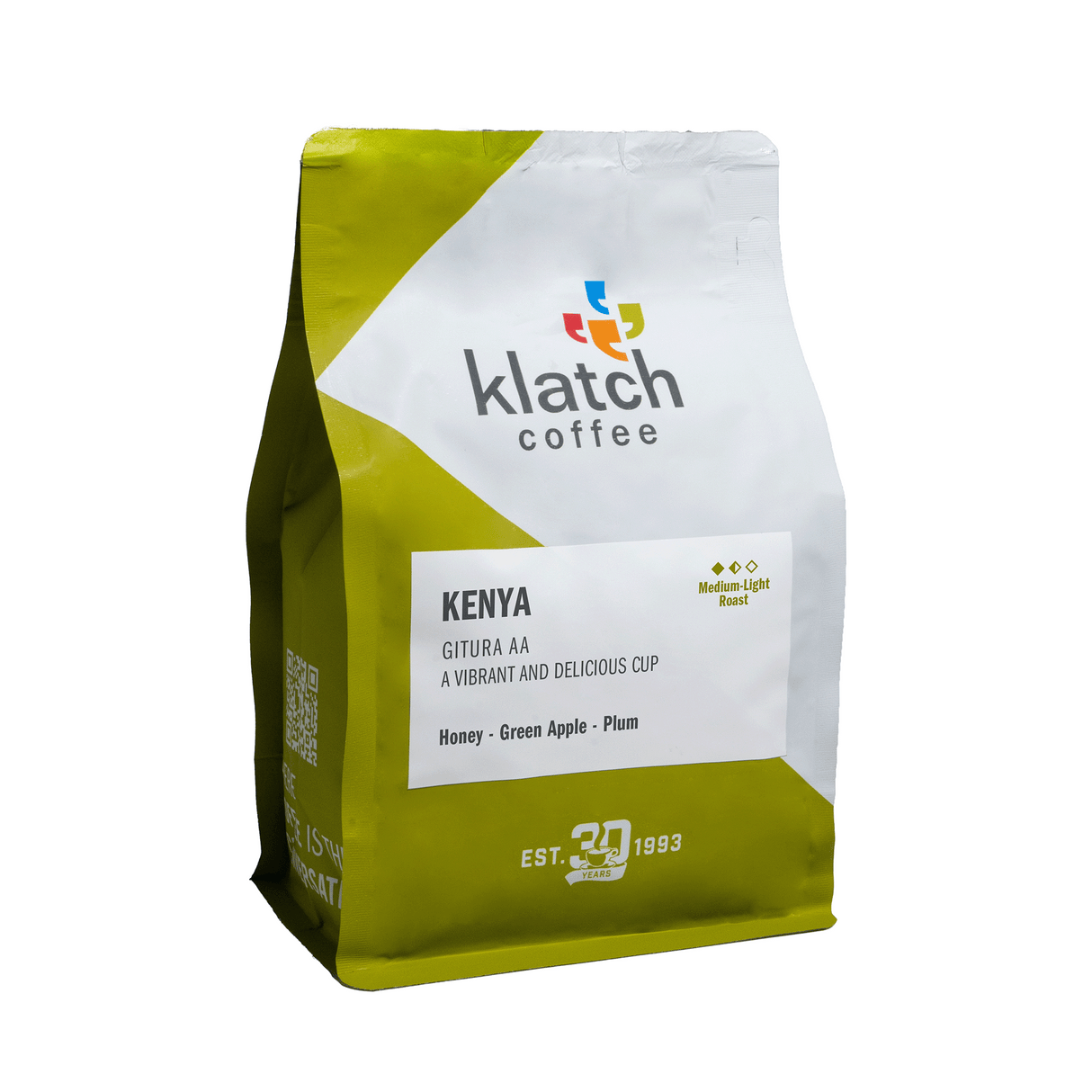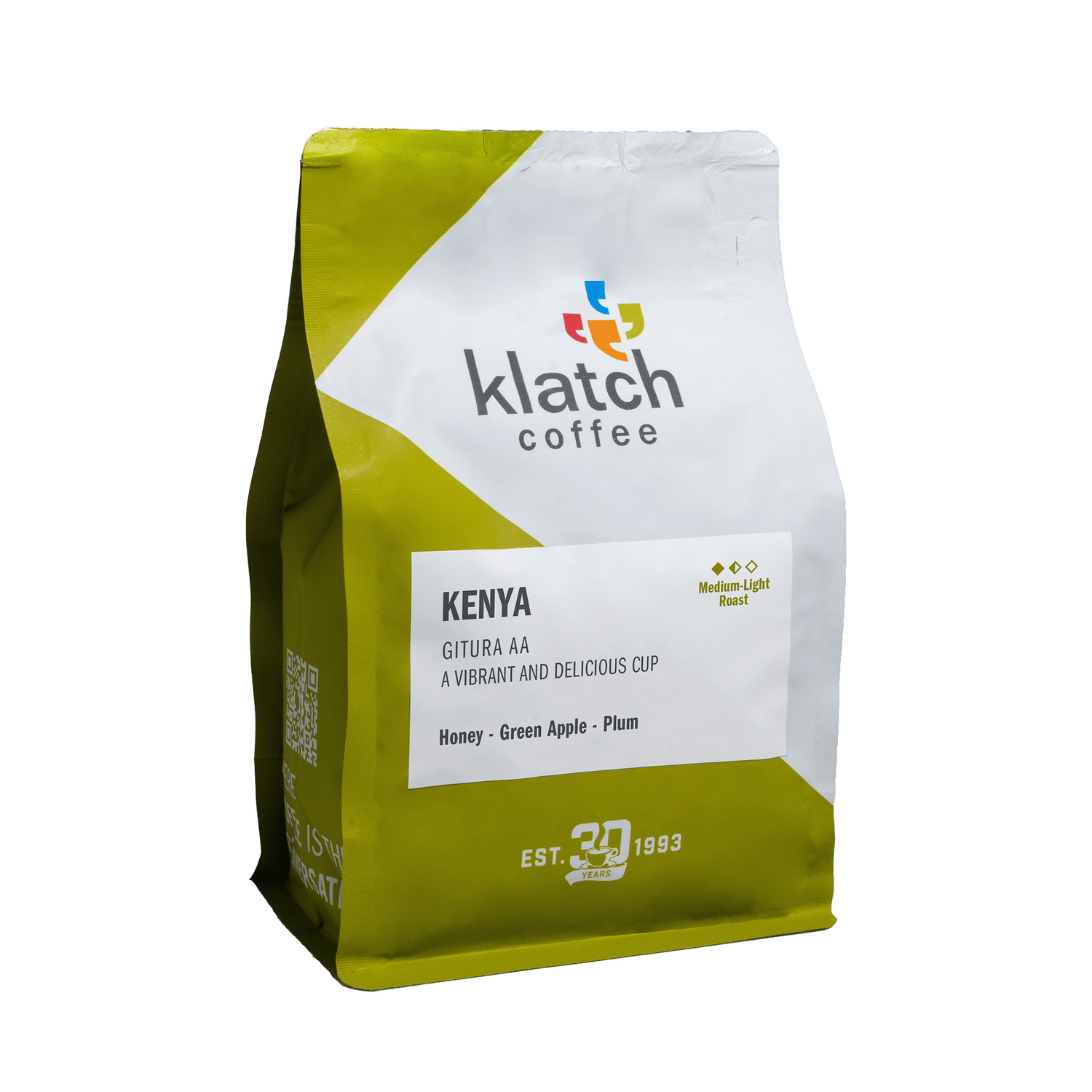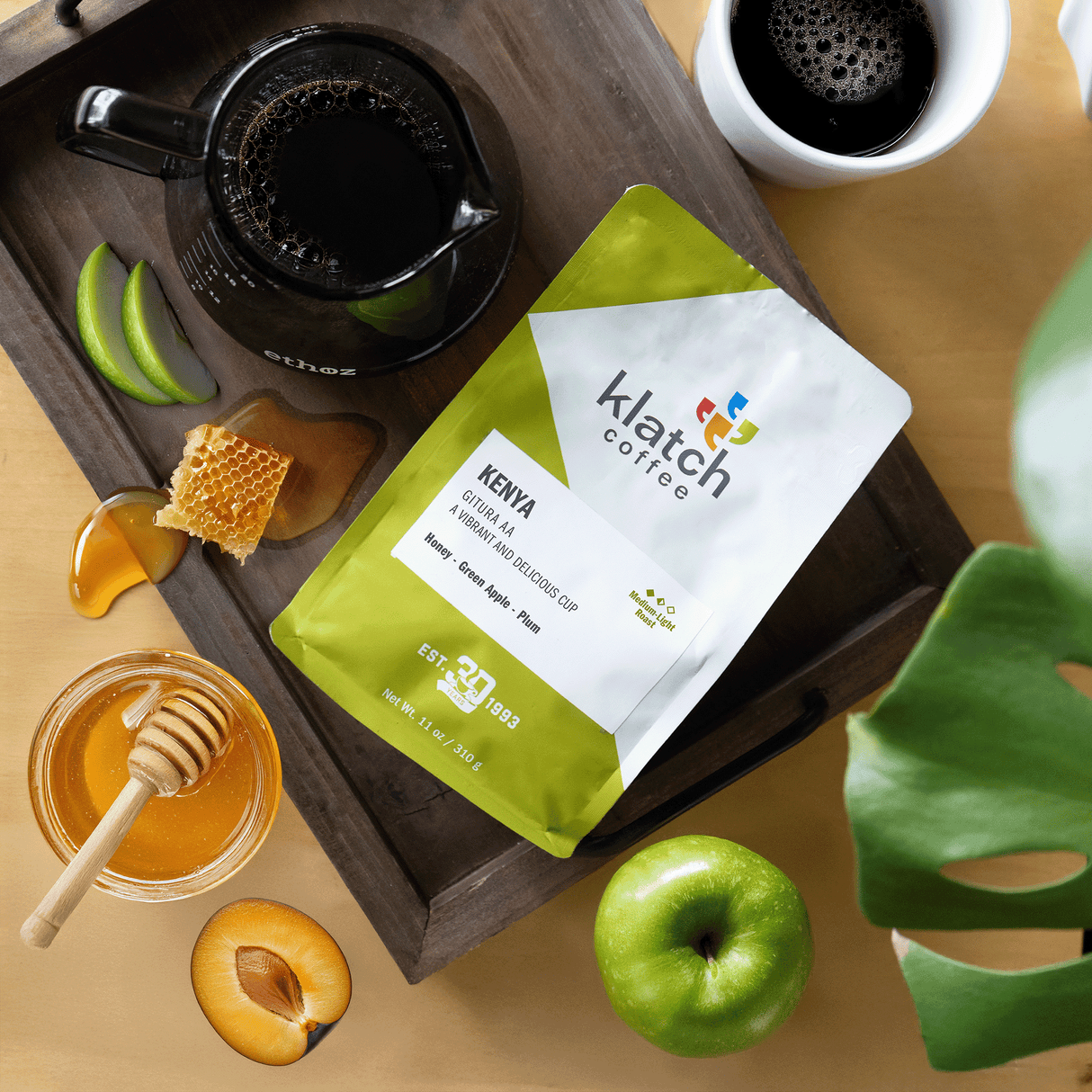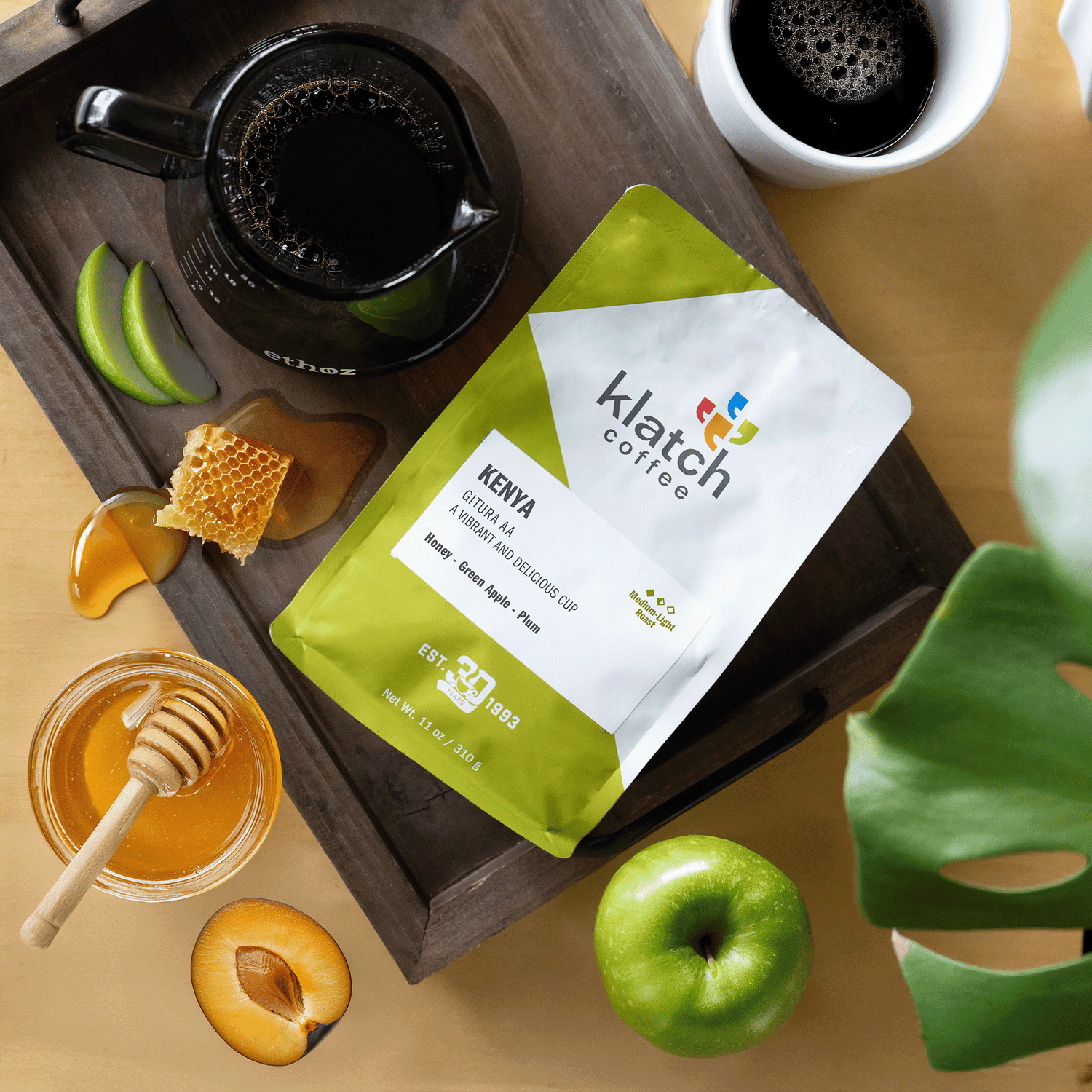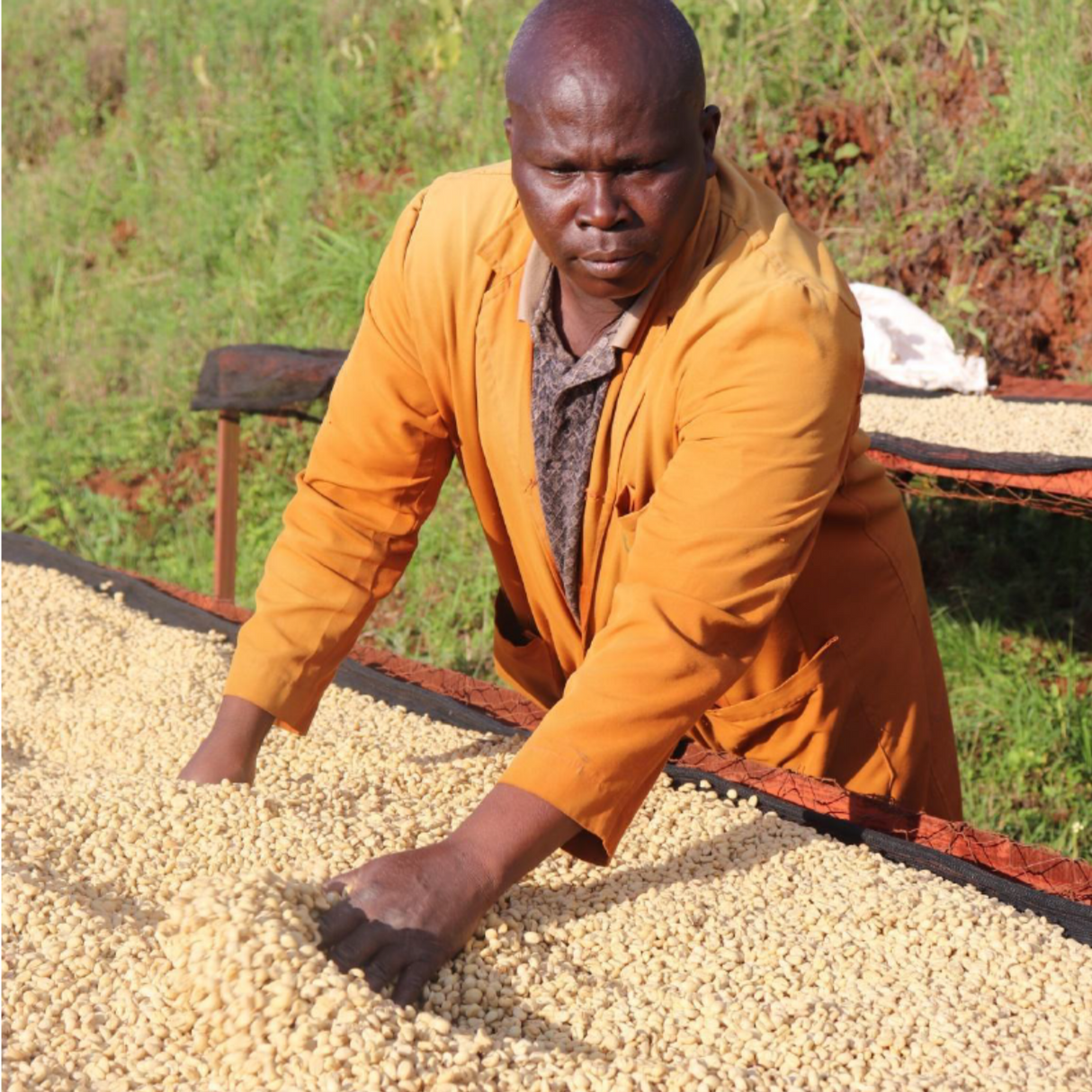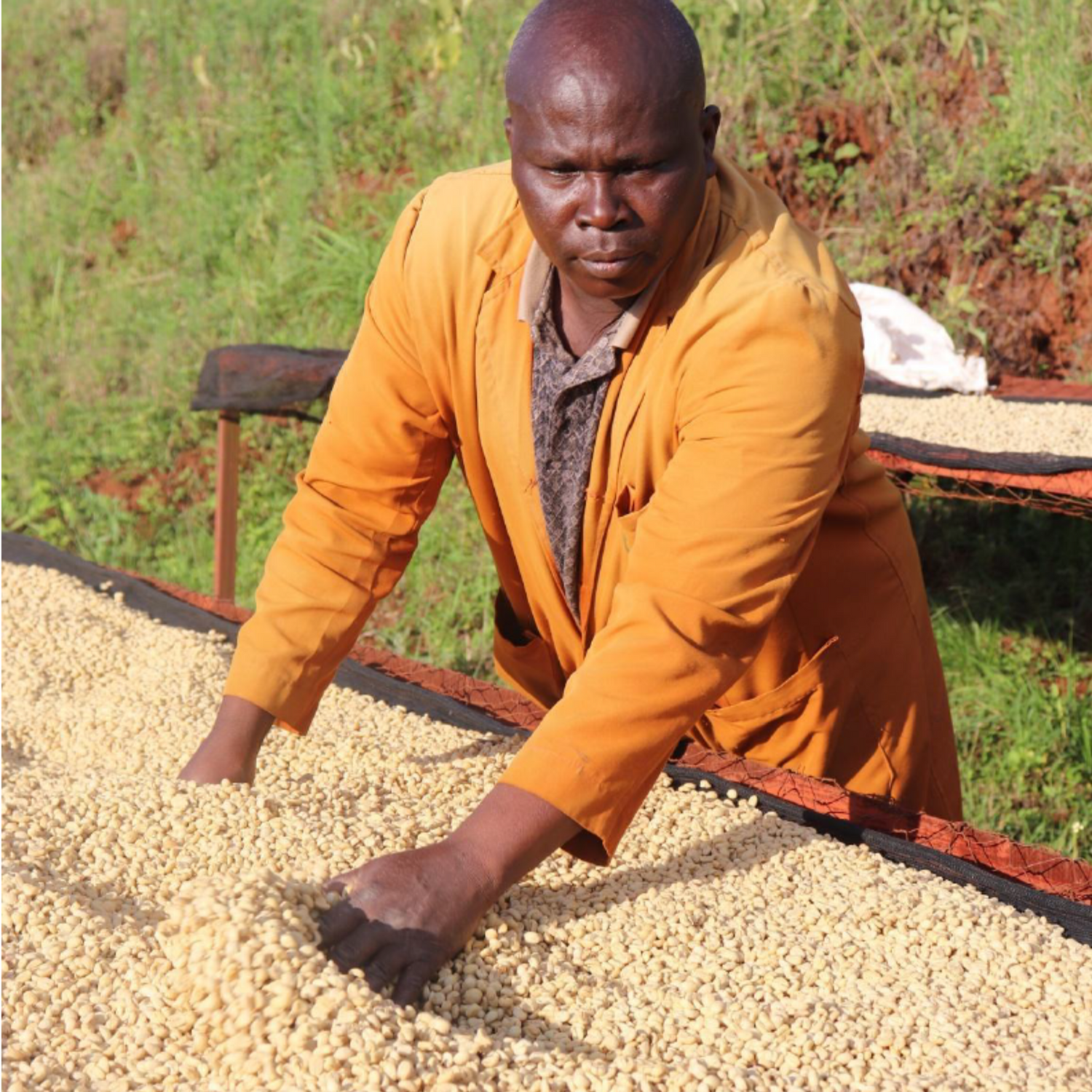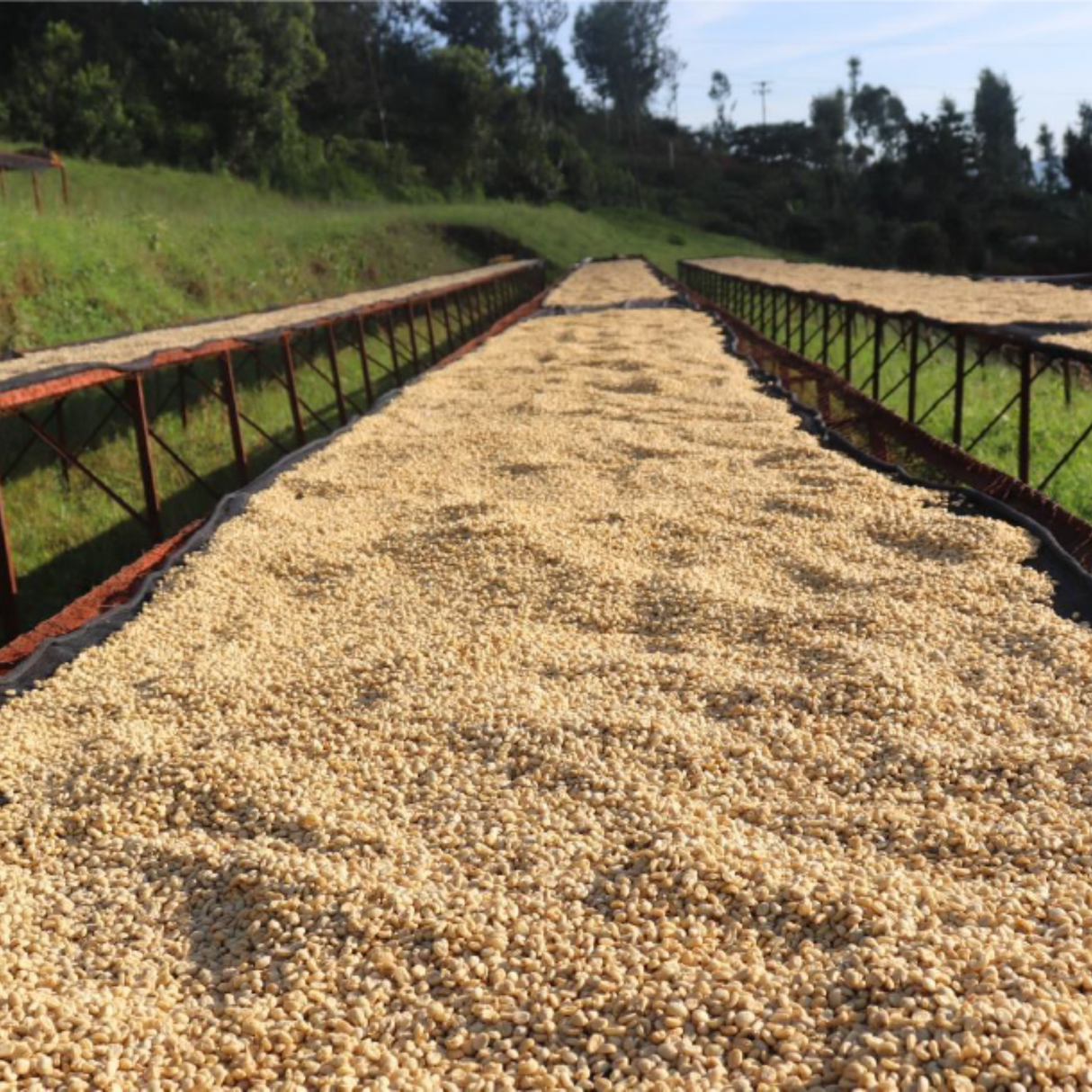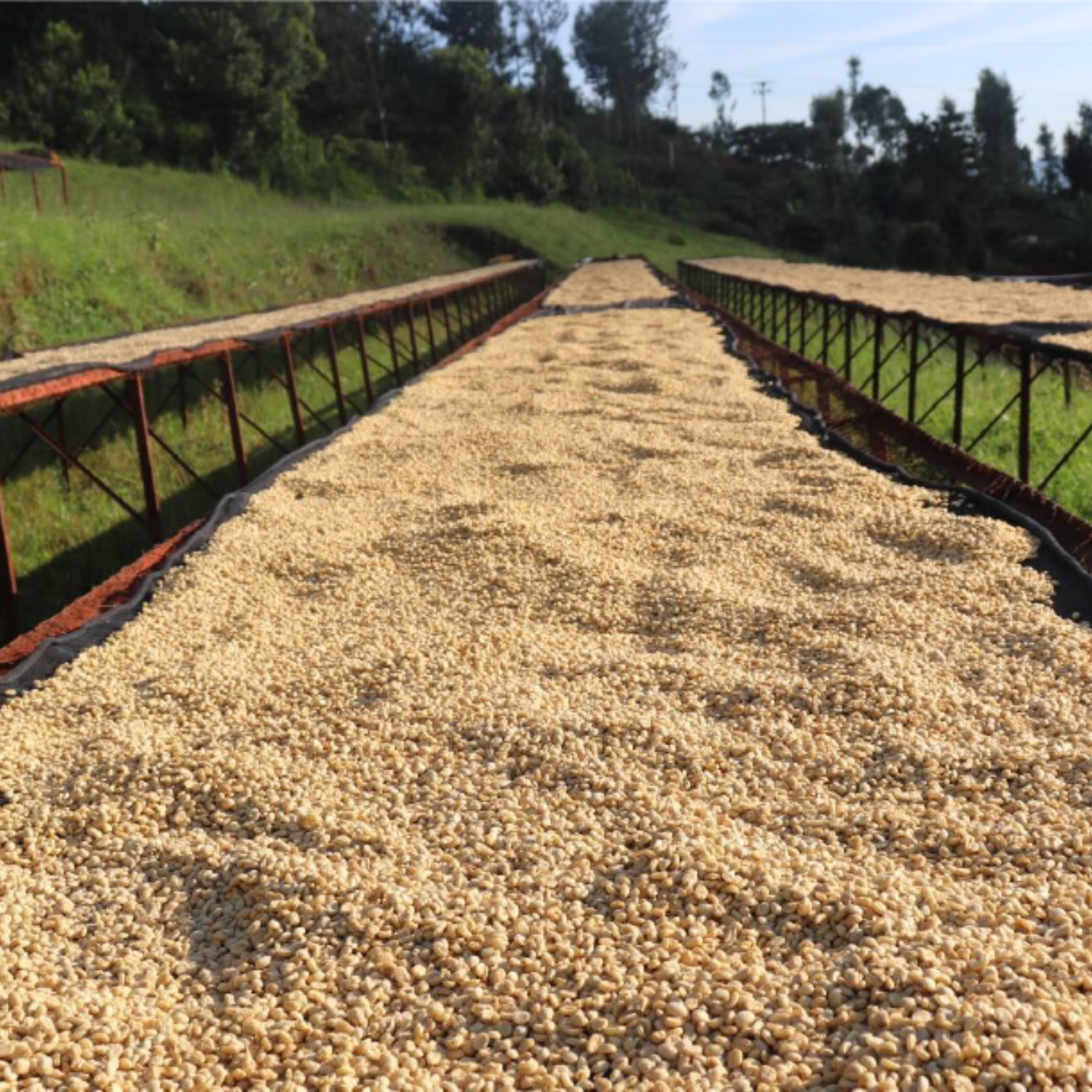Kenya Gitura AA
Roasted to Order
Roasted to Order
Always roasted to order, so you receive the freshest coffee possible.
Free shipping on orders over $50
Free shipping on orders over $50
Enjoy free shipping on all $50 orders.
Starting a club subscription? Shipping on club orders is always free, regardless of order size.
New Arrival!
Description
Description
Embark on a flavor journey with our Kenya Gitura AA, experience bursts of golden honey sweetness and the crisp, tart brightness of green apple, unfolding into a layered plum complexity. Juicy blackberry, green grape, and ripe plum harmonize for a vibrant cup that lingers with depth. The clean, tea-like aroma invites you in, while the medium-light body carries a mouthfeel that is both bright and juicy. Each sip finishes crisp and refreshing, leaving you ready for the next.
A Roastmaster’s Obsession
Kenyan isn’t just any coffee, they're also Roastmaster Mike Perry’s all-time favorite! Our Kenyan coffees are so good, he brings home 3 lbs every week. Mike is constantly in pursuit of great Kenyan coffees - if you’re looking for a next-level cup of joe, Kenya is the single origin that Mike brews for himself, again and again.
Specifications
Specifications
-
Roast Level
-
VarietalSL28, SL34, Ruiru 11
-
Process
-
Farm
-
Farmer
-
Region
-
Mouthfeel
Gitura Coffee Factory
Gitura Coffee Factory
Growing Coffee in Kenya
Growing Coffee in Kenya
History of Coffee in Kenya
History of Coffee in Kenya
Payment Methods
Quick, easy, and secure
Klatchcoffee.com accepts Visa, Mastercard, PayPal, and Apple Pay.
